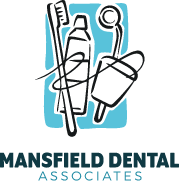It can be hard to pinpoint exactly why your nights are not as restful as they should be. Unless you sleep with a partner, who can report problems like snoring, or the sound of your teeth grinding, you may not know why you struggle to feel rested. Your oral health can be a big factor in how comfortably (or uncomfortably) you sleep at night. Sufferers of bruxism (habitual teeth grinding) can wake up with headaches, or pain in their jaw. People who snore could also suffer from sleep apnea, which causes them to stop breathing periodically, often going without air for more than ten seconds.
Bruxism
Bruxism is the term used for chronic teeth grinding, which is often done unconsciously. Because bruxism can occur more frequently at night, it can cause you to wake up feeling sore, or stiff. Your jaws can exert over two hundred pounds of pressure, and that sustained pressure can harm your teeth, and strain the muscles in your jaw and neck. Your dentist can use advanced equipment, like digital radiography, to examine you for evidence of bruxism, and can offer treatment to help treat the habitual teeth grinding that can occur while you sleep.
Snoring And Sleep Apnea
Snoring can be a symptom of sleep apnea, a serious health issue that affects people while they sleep. Sleep apnea occurs when the soft tissue in your throat blocks your airways; when this blockage occurs, you can be deprived of air for more than ten seconds. Even if you do not realize it, your body is forced awake by this lack of oxygen, disrupting your sleep cycle and preventing you from fully resting at night. Untreated sleep apnea can have major consequences to your health.





Recent Comments